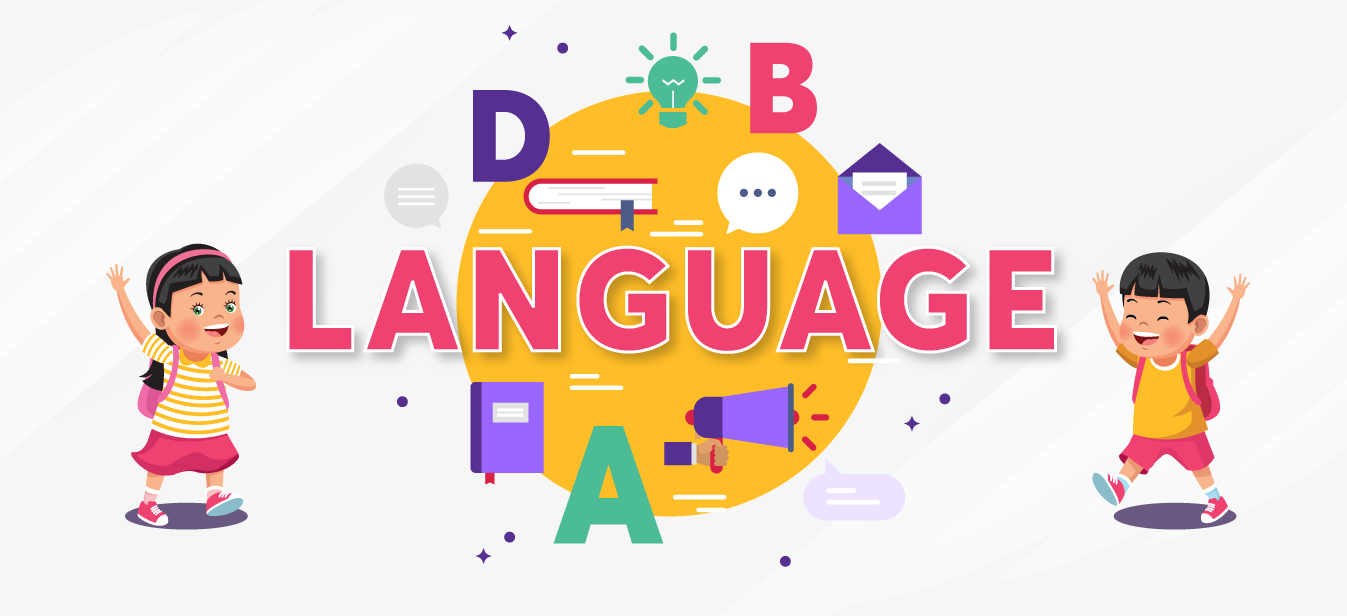
An understanding of language is the foundation of literacy, with vocabulary development impacting all aspects of communication. Building a stronger vocabulary in preschool will improve reading comprehension and prepare a child to learn and grow. A child’s vocabulary can have a profound effect on their future success in school, so the child must be surrounded with reading material that is varied, interesting, and stimulating. By expanding their vocabularies before entering school, young children are better prepared to understand the classroom literature they are about to read.
Research suggests that for young children, language does not just talk. It is a primary vehicle for formulating new concept. A child’s language abilities are directly correlated with their cognitive growth, with words representing increasingly sophisticated ideas. And the more words children use, the more new words are available to them, and the better they can make sense of the world around them. They can talk with their parents about new topics, follow along with stories on television, and follow directions from teachers.
Why does vocabulary instruction need to be in preschool?
The preschool years are crucial for laying a good foundation for language development. Children grow and learn about words through experiences with their environment. In addition to gaining knowledge of meaning from everyday interactions, preschoolers can enjoy building their vocabulary by learning new words from books and rhyming with silly songs. The failure to develop a rich vocabulary in the preschool years has a cascading effect on later reading skills that often hampers academic progress in school.
Comprehension is a critical component of reading, but comprehension can be nearly impossible for a child without a solid vocabulary base. A study shows that vocabulary instruction should begin in preschool. This will benefit students by building a professionally prepared vocabulary and tone with teachers and peers in an organized setting. The ideal preschool setting provides various opportunities to explore and play with new objects and materials not commonly available in a home. It also allows children to learn from one another as they build relationships and facilitate communication skills.
Ways to build a child’s vocabulary in preschool
Good teachers have a specific style in which they unleash their knowledge on students in a way that they can grasp. Teachers who have a good understanding of how to use words, especially when discussing themes or subjects, ensure that their students receive a more cultural understanding of the world and its meanings. While there is no one way to teach vocabulary to preschool-age learners directly, there are several methods teachers can use to encourage their students to learn new words and practice them outside the classroom.
📍 Verbal Storytelling
Verbal storytelling provides children with a way to think about the language that is far removed from the formal written word. It enhances children’s sense of audience and their ability to edit what they say, focus on the point they wish to convey, and respond to feedback from others. Children can improve their actual speech abilities using this approach.
Good storytelling begins with an engaging opening. Young listeners are more apt to be drawn into a story if you grab their interest early. Children are also more attuned to your voice, the pitch, the pattern of stress, and even your breathing pattern as you tell them a story. By recounting real-life incidents or telling familiar fairy tales, you can weave information about the world around little ones by using familiar vocabulary.
📍 Share Rhymes and Songs
Songs, rhymes, and poems are familiar features of the classroom in every preschool. Songs help children remember things. They can also help children express feelings and ideas. Rhymes and humorous poems encourage children to talk in sentence patterns that are more complex than they might use when speaking informally or in single words or short phrases. You can use songs, rhymes, and poems to stimulate language growth in young children and help them become increasingly confident using language for their own purposes.
Children can reap tremendous benefits when they hear, say, and learn nursery rhymes. These catchy rhymes can build literary language skills and enhance sound-symbol relationships that lay the foundation for later reading success. As early as one-year-old, children benefit by hearing classroom songs and nursery rhymes. These joyous tunes teach basic language skills and general animal sounds, which lay the foundation for reading. Include at least one nursery rhyme daily in your classroom instruction.
📍 Use Synonyms
Another way to help your children better their vocabulary is to model the appropriate use of new words in daily conversation. The most powerful tool in this regard is a simple substitution of synonyms in place of common words. For example, when referring to a large living space, avoid using the word “big” and try calling it spacious or enormous instead. A child’s mind absorbs and retains more detailed and descriptive information, and they are more likely to remember words, such as spacious and enormous.
Each child is unique and has their own potential, which should be identified and channelized at the right time. Preschoolers are at a unique place where they can readily learn previously encountered concepts, thus creating opportunities to open learning horizons. At Square Panda India, we create research-based programs that aim at making children ready for school.
To know more, visit https://ecce.squarepanda.in/



